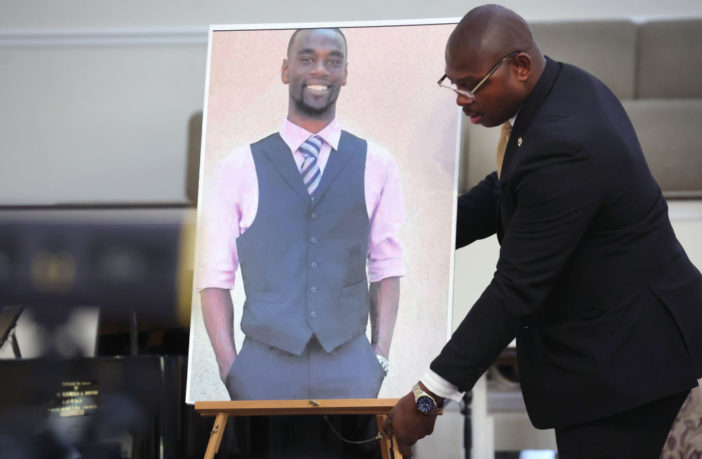Here we are, post-2020—the supposed ultimate reckoning of racism and violence at the hands of the police—begging for our humanity to be recognized by the powers that be in an endless cycle of conversation without true action. A conversation as old as America itself brings us to the repetitious questioning of how we got here and what must change for us to ensure we never do again.
But once again, we are mourning the loss of a Black person at the hands of police.
Tyre Nichols, a father and Memphis, Tennessee native, was barbarically beaten by five police officers—Tadarrius Bean, Demetrius Haley, Emmitt Martin III, Desmond Mills Jr. and Justin Smith—after being pulled over for “reckless driving.” Nichols succumbed to his injuries and passed away three days later in a local hospital.
On Friday January 27, 2023, the body camera footage of Nichols’ vicious abuse was broadcasted on national television for the world to see. It was circulated and exploited across a multitude of social platforms, prompting many discussions on the graphic and inhumane nature of showing a brutalized Black body for some sort of profitable gain.
Whether it has been a mass shooting or hate crime resulting in the wrongful death of a white person, we have never seen a white body be shown in its most vulnerable state for the sake of visual aid.
Unfortunately, this is just the tip of the iceberg in terms of the complexity of this tragedy.
These officers, also Black men, were revealed to be members of a unit on the Memphis police force that was created to prevent violence in the city. They have been charged, as they should, with second degree murder in the case of Nichols’ death.
At a press conference in Memphis’ Mount Olive CME Church, civil rights attorney and activist Benjamin Crump stated “We have never seen swift justice like this.” He continued, “We want to proclaim that this is the blueprint going forward for any time any officers, whether they be Black or white, will be held accountable. No longer can you tell us we got to wait six months to a year.”
Crump is on point with this sentiment. So often when Black folks are murdered by police, we wait for them to receive even an ounce of just repercussions, if at all. Even more frequently, these abusers receive impunity from their actions and get off scot-free. On a grander scale, this conversation is about accountability—equivocal accountability—no matter the color or background of the perpetrator.
“In America, we must continue to face the injustices around race that were written into our founding documents. That this particular case doesn’t neatly conform to a binary narrative—both the victim and the officers were Black —forces us to confront complicated truths. As much as we might seek simple solutions and tidy delineations between good and bad, right and wrong, the real world doesn’t work that way,” noted Dan Rather and Elliot Kirschner in a piece about Nichols’ tragedy.
Tyre Nichols just simply wanted to get home and live another day but America’s corrupt police state did not allow it.
Since the inception of policing in the U.S., there has been an almost seamless transition in power of the role it has played in our communities. To know it began as a method of control by utilizing excessive force and fear mongering against enslaved Blacks in the 1700s is to know that the system is irrevocably connected to this still to this day.



